Is voting for the Liberal Democrats a 'wasted' vote?
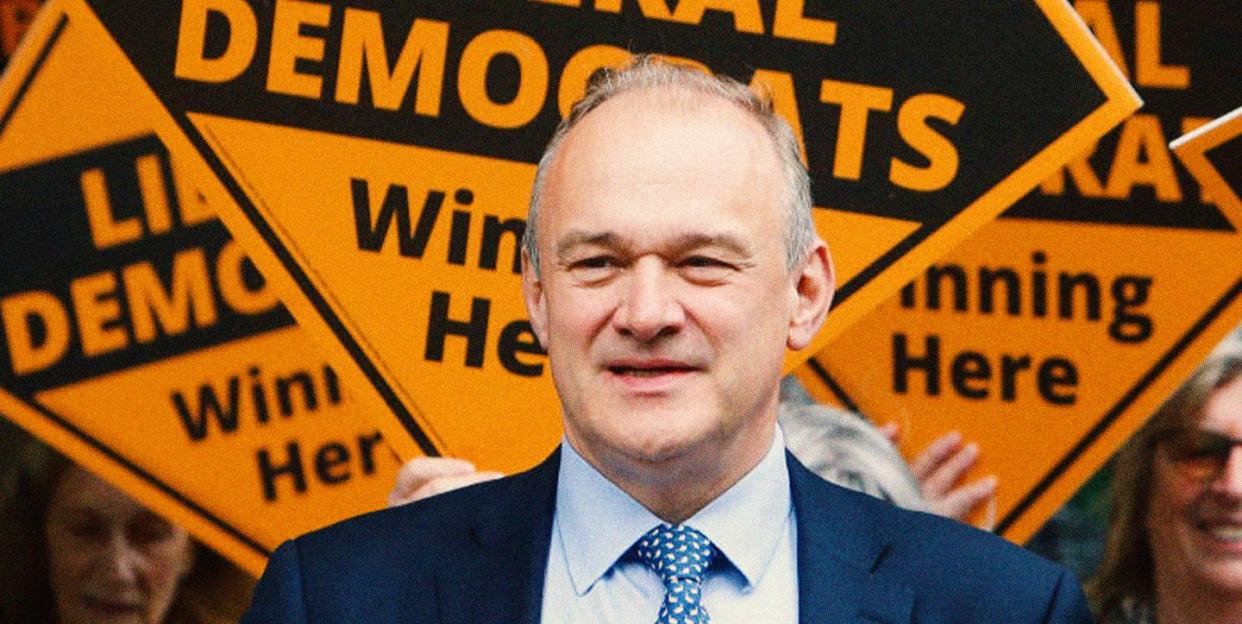
The general election is just around the corner and with it the decision over which political party we want to govern our country for the next few years. So, to say things are tense right now would be an understatement.
The Conservative party, who are in power at the moment with unelected Rishi Sunak as Prime Minister, has been haemorrhaging support as we continue to wade through a cost of living crisis, coupled with a housing crisis, oh and also the NHS being in crisis… and so on ad infinitum.
While polls are currently showing Labour are the favourite to win, this is far from just a two-horse race: we’re also seeing a rise in the number of independent candidates running for parliament, along with increased support for Greens and Reform UK. There’s also the Liberal Democrats, previously part of a hung parliament with the Tories back in 2010, and whose current party leader, Ed Davey, recently shared a moving look at his life outside of politics, where he is a carer for his disabled son, the party gained more seats in May's local election than the Conservatives.
Given there’s ample choice and a lot of people feeling ready for a big change, the concept of tactical voting has become more than prevalent within the chatter surrounding this election too.
In fact, research conducted by the Electoral Reform Society found that Reform UK voters are the least likely to vote tactically, whereas 45 to 50% of Lib Dem, Labour and Green supporters would (suggesting the idea of tactical voting is pretty much a solely anti-Tory move).
But along with this idea of tactical voting also comes the concept of a ‘wasted vote’. It’s widely been touted that a vote for any party other than the main two – Conservative and Labour – will have no impact on the final result and is therefore pointless; and this is something that has continuously cropped up where the Lib Dems are concerned.
The Lib Dems’ rise and fall
As the ‘third party’ in British politics, the Liberal Democrats have always trailed behind Labour and the Tories in terms of votes and seats in parliament. But a surge of success in the 2010 election saw them enter into a coalition with the Tory government. This, as it turned out, was something of a mistake; the views of the two governing parties were poles apart, especially where the Lib Dems’ key promise to scrap university tuition fees was concerned. When fees were actually tripled in 2012, there was widespread feeling among many of their voters that the party had let people down.
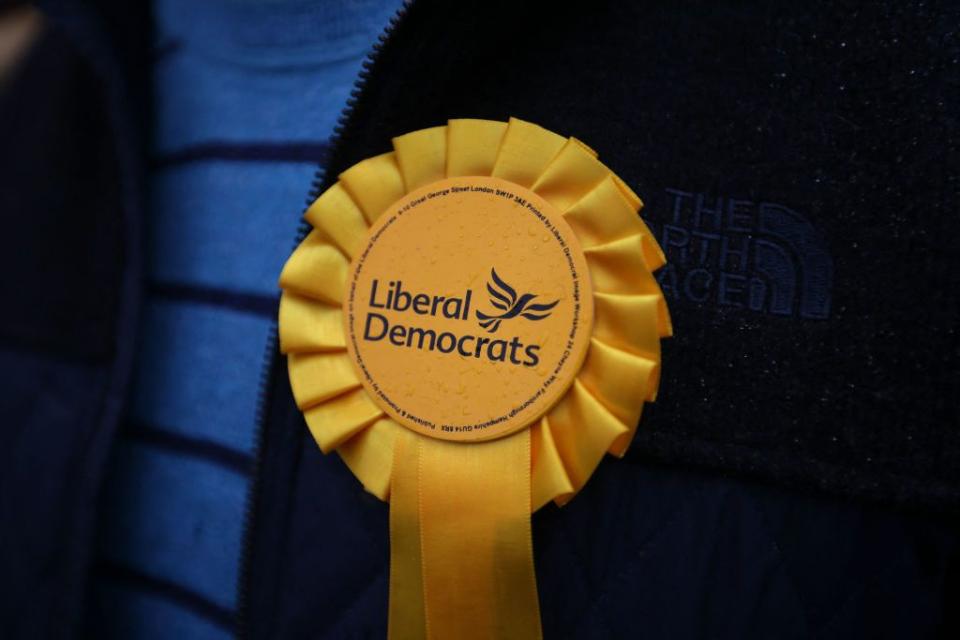
As a result, when the 2015 election rolled around, the Lib Dems lost a load of seats in parliament and a whole lot more trust from their followers (they did manage to claw their way back a bit in subsequent elections, and in the 2019 election they had a total of 11 MPs and 11.5% of the vote).
But here we are now, in 2024. With a large section of the voting population being adamant they don’t want the Tories getting back in, and plenty of others feeling like the Labour party also no longer represents their views, some people are turning back to the Liberal Democrats for an answer.
This, however, is frequently met with a suggestion that a vote for the Lib Dems would be a wasted one because they’ll ‘never get in’. But is there such a thing as a wasted vote, or is the only wasted vote one that isn’t cast at all?
First Past the Post
Being frank, the current state of the UK’s voting system makes it exceedingly difficult for anyone bar the leading two parties to get elected.
As it stands, we adhere to the ‘First-Past-the-Post’ rule where voting is concerned. This means, in simple terms, that each of the country's 650 constituencies vote for a single MP who assumes a seat in parliament representing their party. If one political party succeeds in getting 326 seats or more - over half of all available seats - they win the election. If they don’t reach this majority, it’s known as a ‘hung parliament’ and that’s when coalition governments with multiple parties come into play.
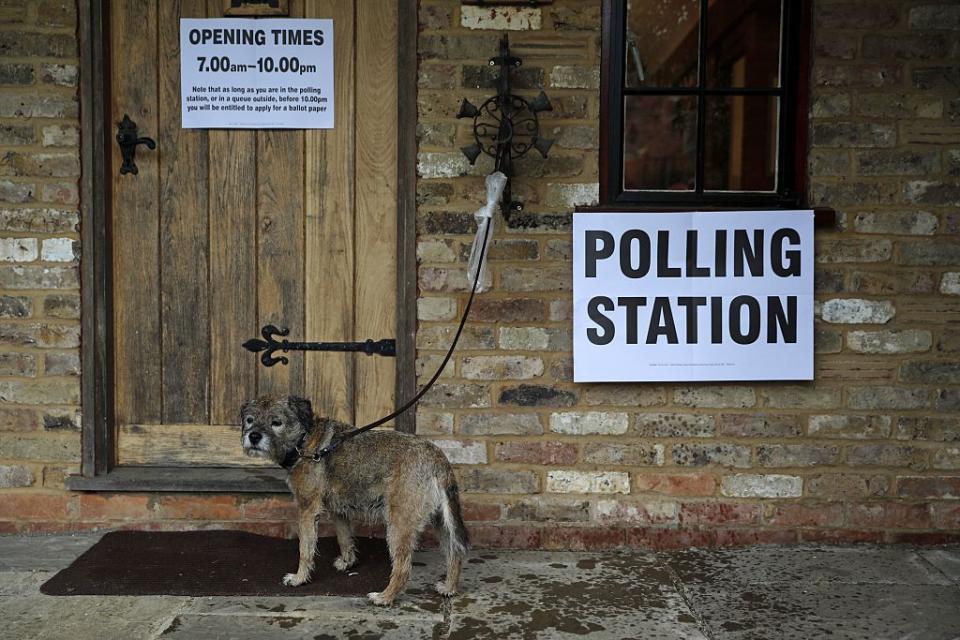
But there’s a major flaw in this system where many are concerned. A flaw so big, the Electoral Reform Society (which states its intention as “building a better democracy”) has deemed First Past the Post “the worst system for electing a representative government.”
To illustrate the major issue with the voting system, let’s imagine for a moment that we no longer have the traditional political parties of Conservative, Labour and Lib Dem, but that we instead have three key emoji parties: the Dancing Ladies, the Running Men, and the Pizza Party. What a world that would be.
As you can see in the below graph, in constituency A, the Pizza Party have a runaway lead (naturally). In constituency B, which clearly has less voters; the Running Men came out on top.

But here’s the issue. What about all the votes the Dancing Ladies received in constituency A? As the graph demonstrates, the Dancing Ladies in fact received more votes coming second in Constituency A than the Running Men did who won the seat in constituency B. Yet all those votes for the Dancing Ladies - as well all the others depicted in black and white below - become completely irrelevant in the grand scheme of the election, simply because they didn’t come first place in their constituency.
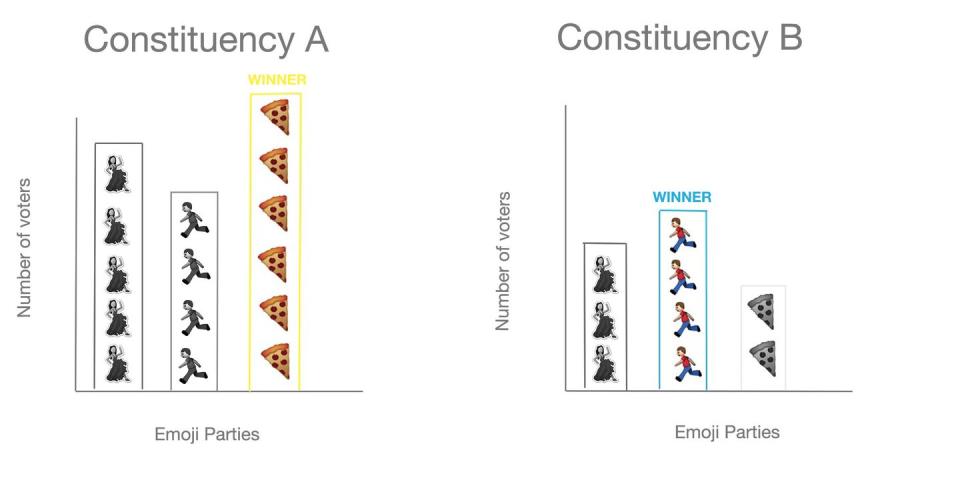
The First Past The Post system means that a political party could have thousands upon thousands of votes, but down to luck of the draw in terms of where in the country these voters are located, they could win hardly any constituencies, and have hardly any chance of ever getting into government. If you look at it like this, the Electoral Reform Society reports that 74.4% of votes cast in the 2015 general election were essentially redundant for this exact reason.
More recently, in 2019, it reports that while Conservatives received 43% of the overall votes in the election, the party took up 56% of the seats in parliament – and at the same time, if we add up the total number of individual votes the Lib Dems received in 2019, it’d be an 11% share. Yet they only accounted for 1.7% of seats in parliament prior to it being dissolved ahead of the upcoming genny lec.
That’s a staggering number of voices that effectively aren’t heard.
A vote for something different
Speaking to Cosmopolitan, Christine Jardine, the Liberal Democrats’ women and equalities spokesperson, stressed that a vote for her party is far from a wasted one – and sought to remind voters that it’s not just a two-party race.
“This election is a chance to turn the page on this Conservative government and deliver the change that people across the country deserve,” she explained. “In many seats across the country, it’s the Liberal Democrats who are best placed to do this.” You can also look on databases such as Tactical.Vote and StopTheTories to see whether you live in an area where the Lib Dems are predicted to have a strong chance of winning.
“Every vote for the Liberal Democrats is a vote to elect a strong local champion who will fight for a fair deal,” Jardine stresses. “First and foremost, that means fixing the health and care crisis. We will ensure every patient gets the care they need when they need it, by giving everyone the right to see their GP within 7 days, ending dental deserts and guaranteeing people start cancer treatment in time. We will also fix and expand the carer's allowance which would benefit 1.3 million eligible unpaid carers in England and Wales.”
She added that it’s vital for all parties to address issues specific to women, too. “One way we would do this is through our ambitious plan to transform parental leave, which includes doubling statutory maternity pay to £350 a month and improving the paternity and shared parental leave offer."
Whatever your stance on politics, it’s hard to disagree that due to the current voting system, it’s harder for the likes of the Lib Dems (and all the other non-major parties in the UK) to get a fair shot at putting their policies into action. Is that completely democratic? It's arguable.
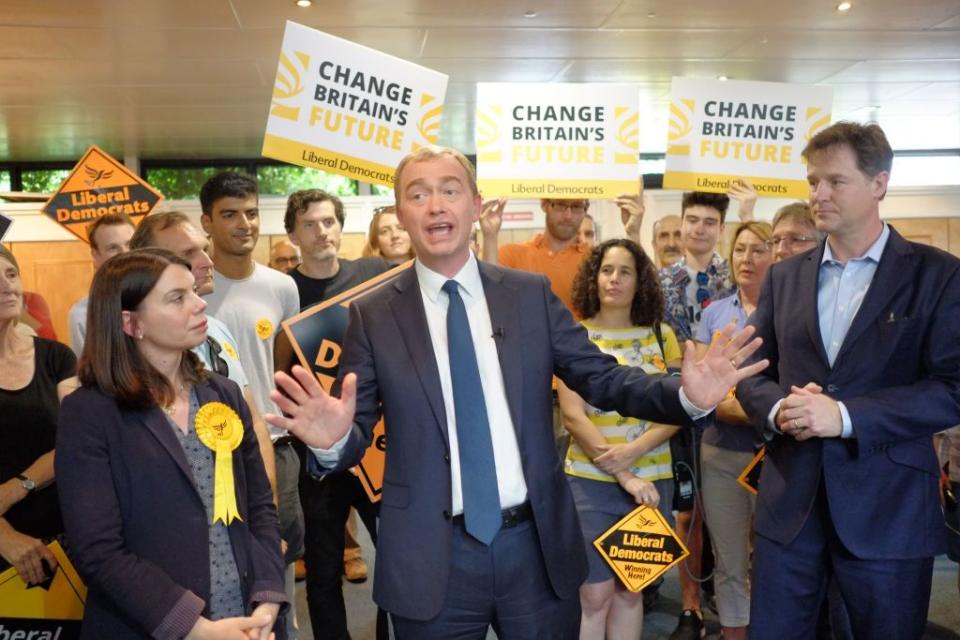
But change is possible – take France back in 2017. Emmanuel Macron, the country’s current president, had no support from either of France’s two major political parties when he ran, and actually ended up winning the election, demonstrating how an alternative, arguably more democratic voting system allows for new political perspectives to come through and lead.
With just weeks to go until the election, you might still be undecided about who you want to vote for. But when making this decision, consider this: is it a good idea (from a democratic perspective) to be swayed away from the party whose policies your beliefs most closely align with, simply out of fear they won’t get elected?
Does a tactical vote, rather than a vote for who and what you actually believe in, whether that's the Liberal Democrats or otherwise, help or hinder progress? It's an individual choice for us all to make.
But let's remember that all votes cast count for something. And until we see any kind of electoral reform, isn't it preferable to fight for positive change by voting for what we actually believe in?
To follow Cosmopolitan's General Election coverage click here
You Might Also Like

 Yahoo News
Yahoo News 
